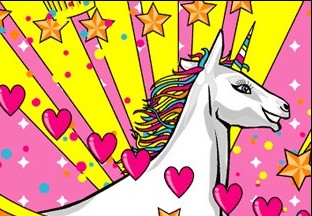I saw a meme recently (captioned “He lost an arm. She had a double mastectomy. This is their Christmas card…”):

Woman getting a bra as a Christmas present, man using hook to take out a present which is a glove for the hand he’s missing. Both look sheepish.
This had gone viral in a few places: on Facebook, on Reddit and so on. And on first thought, it seems great. What better way of showing how people can use humour to get through adversity, how they can retain a sense of the whimsical and laugh at themselves and so on. Of course I have to disagree, otherwise why would I write a post?
It is wonderful that the couple made this Christmas card. But only if it was wonderful for them. Because they don’t owe their friends a cheerful Christmas card — to say nothing of strangers online. My worry isn’t with the card but with the implication behind its spread. A lot of the people passing it around probably have the idea that it’s almost expected. You must think positive, even if you’ve just had a double mastectomy and an arm amputation.
Think about how horrible and oppressive that is to someone who’s had something bad happen to them. Not “you can think positive” but “you must think positive”. Because when life gives you lemons, they’re not sour but thinking makes them so! A little like The Secret, as Melanie from Skepchick noticed. And while I really hate smarmy anti-Internetism, this is one area where it’s made it worse. There’s a bit of expectation that you’ll come up with a snarky meme regardless of the shit situation you’re in. There aren’t too many memes for *sobs softly in the corner due to unwanted loss of body part*
.
Passing around a picture is pretty harmless, even if you crappily build an expectation of positive thinking. There are many cases where the mandatory nature of positivity does lots of harm:
- Barbara Ehrenreich wrote a book on the dangers of positive thinking (see an earlier post about it), prompted by her experience when undergoing treatment for breast cancer. The online and offline support groups she attended focussed on staying positive, being grateful, counting blessings. To the point where she was ostracised for not taking her cancer to be some great learning opportunity the universe kindly gave her for the sake of personal growth.
- A friend had to go back to the UK because his mum was dying and then just a few years later had to take a similar trip for his dad. On coming back and explaining to his neighbour that his dad had died too, he got this response: “So your lesson here is death.” The neighbour was an alt med practitioner, in case that wasn’t clear. Uhm, if this was a lesson from the universe meant for him, he probably got it the first time a parent died, no?
- The meme of people not letting crushing poverty get them down, because they’re too busy being all grateful and spiritual and community-minded. More about that one here.
- As Xeni Jardin put it so eloquently in terms of responses to her breast cancer treatment: “Your inspirational cancer porn shit is not my reality.” (Source)
The cult of positive thinking the ideology of rugged individualism, when applied to personal attitude. Pull yourself up from your illness-based blues by your bootstraps! And don’t forget to be grateful for your secure job, comfy home and cushy savings — unless… As someone wise said on Twitter: “The only difference between a good day and a bad day is your attitude. Try to ignore oppression, famine, war and disease.”
If a positive attitude through bad times is feasible and works for you, great. But to expect it from others is a bit shitty.




0 Comments